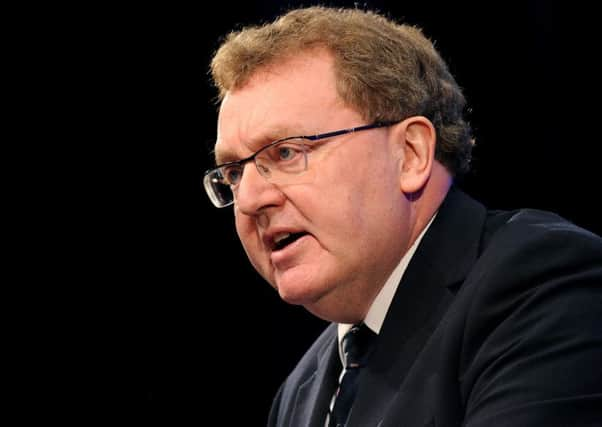Abortion law to be devolved to Holyrood


David Mundell said there was no “convincing constitutional reason” why the law should not be devolved to Holyrood in the Scotland Bill, which is currently being debated by the UK Parliament.
The Smith Commission report on further devolution last year recommended that serious consideration should be given to its transfer to Edinburgh. Yesterday Mr Mundell told the Scottish affairs committee at Westminster that an amendment would be made to the Scotland Bill to bring forward the move.
Advertisement
Hide AdAdvertisement
Hide AdHe said: “Holyrood already has responsibility for with end-of-life issues. It has responsibility for the NHS and for criminal justice in Scotland.
“I do not see a convincing constitutional reason why abortion law should not be devolved and that is what has led me to this decision. What will follow is proper engagement with interested parties as we take this matter forward.”
There has been ongoing discussions between the UK and Scottish Governments on the issue.
Although the Scottish Government welcomed the decision last night, First Minister Nicola Sturgeon told MSPs last month that the Scottish Government has no plans to change the law. She said she believed it should be devolved to “bring it into line with almost all other health matters”.
Mr Mundell confirmed that he had spoken to Deputy First Minister John Swinney yesterday to inform him of the decision.
Scottish Labour equalities spokeswoman Jenny Marra said: “The Secretary of State has taken this decision behind closed doors without any consultation with women’s groups across Scotland.
“The Smith Commission promised a process to consider this, but that seems to have only meant a process that involved ministers of the UK and Scottish Governments, and not women across Scotland.
“Scottish Labour firmly believes that the safest way to protect the current legal framework around abortion is for it to remain at UK level where there is a strong consensus around the current time limits. Leading human rights and women’s groups have said that devolving abortion law could undermine the right of women to make their own decisions.”
Advertisement
Hide AdAdvertisement
Hide AdThe announcement received a mixed reaction from women’s groups and campaigners.
Anne Henderson, of Abortion Rights Scotland, said: “We have taken a neutral stance on devolution of abortion but our starting point would be that the 1967 Act must be the minimum.
“We are also concerned over the lack of consultation which has taken place. The Scotland Office has not spoken to us about this, even though it was agreed in the Smith Commission that this should happen.”
A spokeswoman from Engender, a Scottish campaign group which organised a letter raising concerns over the devolution of abortion last year, said: “With the news that control over abortion law is due to be devolved to the Scottish Parliament, Engender is calling for a progressive approach to abortion that reflects the fact that it is a health issue that also underpins women’s autonomy and equality with men.
“In July, Engender was one of several organisations to sign a joint statement urging caution over the devolution of abortion as part of the Scotland Bill.
“We are not opposed to the devolution of abortion to Scotland, but were concerned that the haste of the Smith process and the Scotland Bill itself may lead to a reduced timetable for discussing the content of any abortion law.
“We are disappointed that engagement with civil society, and the women’s sector, did not form part of the UK Government’s decision-making in seeking to amend the Scotland Bill.”
Dr Marsha Scott, Scottish Women’s Aid chief executive, said: “We are pleased that David Mundell has promised ‘proper engagement’ over the devolution of abortion.
“Scottish Women’s Aid looks forward to working with the Scotland Office and Scottish Government to ensure that women’s access to reproductive healthcare, a basic human right, is improved.”